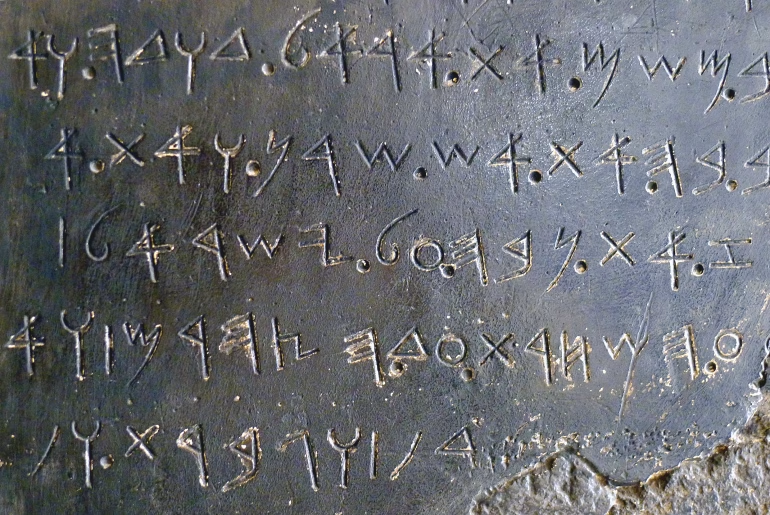The Christian missionaries have accused the Qur’an of making a “contradiction” on the issue of who was responsible for the worship of the Golden Calf.
It is further interesting to note, however, that the New Testament contradicts the Old Testament on the matter of blaming Aaron(P) solely for the fashioning of the Golden Calf. Exodus 32:4 squarely puts the responsibility of making the calf upon Aaron himself :
“He [Aaron] took this from their hand, and fashioned it with a graving tool and made it into a molten calf.” (Exodus 32:4)
Clearly in this verse above, it is Aaron who is blamed here. This is also made clearer when we read in the subseqent verses (Q 32 : 5 – 6) how Aaron was responsible for building an altar to the statue he had just created and made burnt offerings to it.
However, when we compare this with Stephen’s speech in the Acts of the Apostles, the blame of fashioning the Calf clearly shifts upon the Israelite people themselves, by employing the blame in plural :
“At that time they [the Israelites] made a calf and brought a sacrifice to the idol, and were rejoicing in the works of their hands.” (Acts 7:41)
Subsequent verses also suggests the same if it were read further (7:42 – 43). So who was responsible for the fashioning of the Golden Calf, Aaron or the Israelites ? That is a question which behooves for the Christian missionaries to answer !
And only God knows best.





3 Comments
it’s amazing how Starjade claims Samiri means Samaritan. whats more interesting about his claim is, he is using modern day English translators to defend his pathetic argument. the Arabic text is clear “SAMIRI” period. not Samaritan. im shocked on why you haven’t shown any classical Arab commentators who claimed Samiri is Samaritan. in fact let me help you with this name. Here is a link to an Academic site, where this bogus lie is refuted.
http://www.islamic-awareness.org/Quran/Contrad/External/samaritan.html
hi starjade,
the koran differs from the old testament because it CORRECTS the old testament.
the old testament also differs in some details with the supposedly pagan stories from ancient mesopotamia, like the expulsion of man from paradise, the flood, the tower of babel, etc. but these sources (such as the sumerian enuma elish, which recounts the story of the flood) predate the bible. who ever said that the old testament is the original source of these data ? lest you say that you are not talking about genesis but moses, then the point is quite simply this : it appears that you are committing the common christian fallacious interpretation that since the old testament predates the koran, then the old testament is the correct account and any difference between them would make the koran incorrect. then why did the ancient mesopotamian pagans know about the Flood when the bible was not written back then ? could these pagans be the source of the biblical story as well ?
christians and jews will have difficulty with such questions, but muslims do not. we believe that every nation has been sent a prophet, and that prophet definitely taught them something. those teachings may have been lost, tampered, or altered, or they may have been abrogated by God. it is God who is the source of all these information, in their pure, unaltered form. i do not care what the writers of the jahvist or the elohist text of the pentateuch say about moses ; what i care about is what moses himself said. if you will insist that what you have right now are the original writings of moses, then please provide an unbroken chain of transmission through trustworthy narrators that that is what exactly moses wrote or said (please do not invoke the “lying pens” of the jewish scribes, as prophet jeremiah said) thus, we have no problems if you see something similar between the koran and the old testament, or any other book for that matter. that portion of that book may have been taught by a prophet, so we accept it if it agrees with the koran, not because it predates the koran, but because the Beloved Prophet (saws) taught us about it. as for the differences, it may be caused by alterations in the text of the old testament or enuma elish, just like what prohet jeremiah said in jeremiah 8:8 about the law of the Lord being turned into falsehood by the lying pens of the scribes. as for your alleged error regarding samaritans, that has been refuted by the islamic awareness team in their website.i am merely addressing your statement which says “It is an interesting point that the Koran account differs from the Old Testament account. The Old Testament is the original scource of the data and yet the Koran contradicts that Old Testament statement.” that would be all. a reply would be highly appreciated. may the God of abraham, Isaac and Jacob guide us all to the truth. Amen. and God knows best.
one final note : lest you force me to accept the old testament since i quoted jeremiah, then i would like to remind you that the burden of believing what is said in the book of jeremiah is not upon me, but upon you.
It is an interesting point that the Koran account differs from the Old Testament account. The Old Testament is the original scource of the data and yet the Koran contradicts that Old Testament statement.
The Qur’an says that the calf worshipped by the Israelites at mount Horeb was molded by a Samaritan (sura 20:85 – 87, 95 – 97). Yet the term ‘Samaritan’ was not coined until 722 B.C., which is several hundred years after the events recorded in Exodus. Thus, the Samaritan people could not have existed during the life of Moses, and therefore, could not have been responsible for molding the calf.
It is interesting to notice that while Yusuf Ali attempts to change this word to “Samiri” and Pickthall to “As Samirii,” Arberry in the English, and Kasimirski in the French both correctly translate it “Samaritan.” Yusuf Ali, in his footnotes, “bends over backwards” to explain his choice by suggesting that the name could mean “Shemer,” which denotes a stranger, or “Shomer,” which means a watchman, the equivalent of “Samara” in Arabic, which he implies is close enough to the Samari he is looking for. Once again we find an awkward example of Ali attempting to twist the translation in order to get out of a difficult scenario, similar to the examples of “Periklytos,” or the word “Machmad” which he uses to signify Muhammad in the Bible. The Arabic simply does not give Ali the leeway to concoct other meanings for this word. To be consistent with the Arabic he should keep his translation consistent with the text, as Arberry and Kasimirski have done.